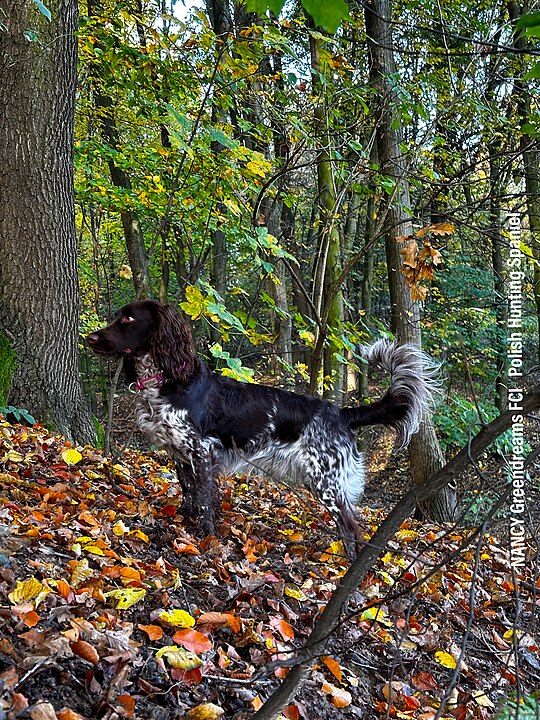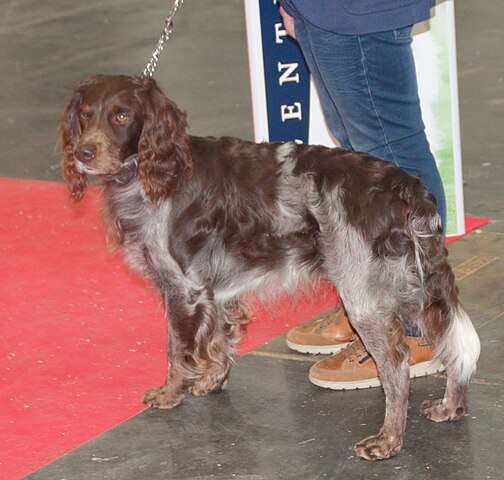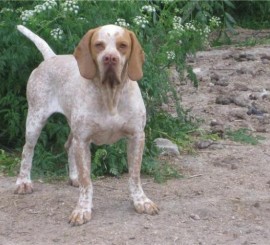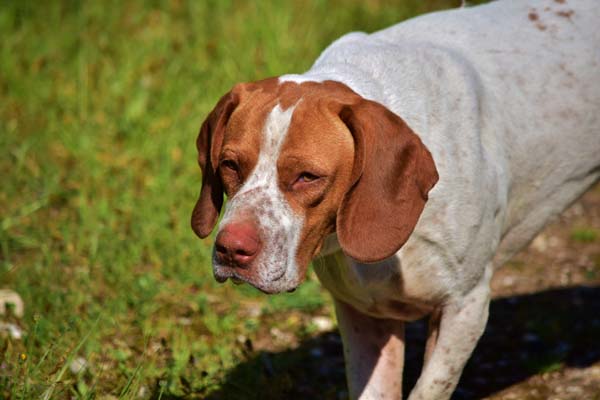The German Shorthaired Pointer is a versatile hunting breed and valued companion. Bred not only to point, but also to retrieve on land or water, hunt large and small game, and trail wounded game – as well as get along with both children and adults in the home – this is a dog with many talents. These large dogs are healthy and athletic, and often live between 11-12 years. No wonder they are one of the most popular breeds in the United States! This said, they are certainly not the dog for everyone as their requirements are steeper than many people are prepared to give.
As a very active breed, the GSP requires an owner willing to give this high energy dog lots of exercise several times a day! Jogging, ball-chasing and swimming are all great activities. Not only do they have tons of energy but they are also surprisingly strong. Without training, they can easily overpower a frail owner. Without regular exercise they will become destructive and frustrating to live with. An owner must therefore be able to provide both mental and physical stimulus daily. Crate training is recommended as one of the first skills they should learn so that their curious nature won’t get them into trouble while owner is away (adolescent GSPs especially), but crates are never a substitute for exercise. Looking for the perfect crate for your GSP? Check out the Petmate Vari Kennel to keep them comfortable and secure – https://amzn.to/3B3CUE6
The Shorthair can live in a kennel or outside if need be, but only if they are taken out frequently and given lots of human contact. If delegated to outside life without plenty of human interaction, behavior problems such as digging, barking and chewing will often ensue. The same can be said for an inside-dog that is not given the same. GSPs need a job to do, and as they were bred to work with people, they need to do that job with you! Hunting is not necessary, there are many type of activities a Shorthair can participate in including (but not limited to) tracking, search and rescue, therapy, conformation, coursing, flyball, obedience, water trials, agility, CGC, dock diving, flyball or rally. Some even become hearing-ear dogs or service dogs!
The Shorthair is highly trainable, especially if training is started from a young age (although GSPs of any age are very capable of learning). The breed is quite eager to please. Some learn astonishingly quickly while others will require a bit more patience on the side of the owner, although in general they tend to have a higher-than-average aptitude for learning. Consistency is key, as well as keeping lessons short and simple. Some tend to get “creative” with the commands, trying to put their own spin on things so make sure to only reinforce what you want! Remember, also, that GSPs are sensitive creatures and may get spooked or alarmed with quick arm movements. Be prepared to work them through any anxieties they may have. 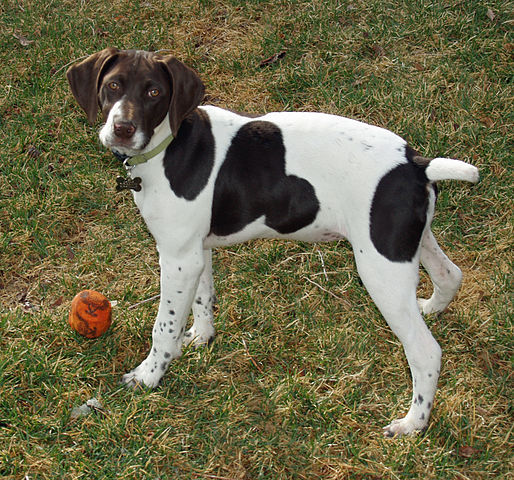
Although the coat of the German Shorthair is (like the name) short, it is thick and somewhat harsh to the touch. This coat helps to protect them in the cold elements as well as from the thickets and brush of the outdoors. This said, they may still require a coat when outdoors in extreme cold temperatures, especially if they haven’t grown accustomed to the weather. This German breed does indeed shed, and the short length of each hair means that it will embed itself into furniture and carpeting and be generally difficult to vacuum out! Be prepared to brush and bathe the coat in order to keep the shedding to a minimum.
Most German Shorthairs enjoying a good game of fetch, and may also try to “fetch” everyday objects in the house! Teach the dog early on what he is and isn’t allowed to grab. An appropriate toy such as a Benebone can make playtime exciting while keeping the dog from destroying your own things – https://amzn.to/410F5TG
They also may be keen on trying to hunt the family cat… the level of prey drive differs depending on the line, the individual dog, and the amount of socialization they had with cats as puppies. Many are not able to live with the smaller species. One other trait that many Shorthairs seem to have is an affinity for escaping the yard. Thus, these too-smart-for-their-own-good dogs may need a more secure yard than usual!
GSPs are friendly and devoted to their owners, with some becoming almost dependent. Separation anxiety can be an issue for many members of the breed. Many love the children of the family just as much as the adults – although their enthusiasm and tendency to bounce around means they’re ill-suited living with very young kids. Among their many talents, they also make fine watchdogs as they hold their owner’s safety in high regard.
Affiliate Disclaimer
As an Amazon Associate, I earn from qualifying purchases. This means that if you click on an affiliate link on this site and make a purchase, I may earn a small commission at no additional cost to you. Rest assured that I only link to products I have used, or use on a regular basis, and trust enough to recommend them to you!
